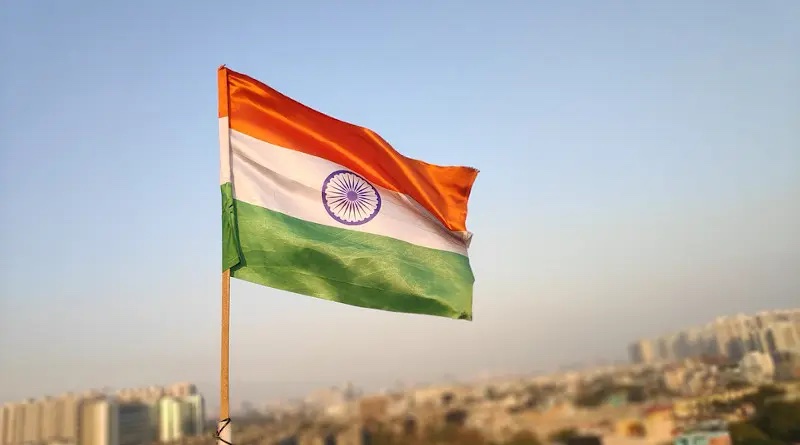Why The Shiromani Akali Dal Is In The Best Position To Lead India – OpEd
India’s political leadership is facing a crisis of confidence. After mismanaging India’s initial response to the pandemic, the Bharatiya Janata Party (BJP) under Prime Minister Narenda Modi is now facing a nightmarish scenario as India experiences a devastating second wave of COVID-19 cases.
With the public health system already on the brink of collapse, the BJP government is allowing millions of people to travel across the country to the Ganges so they can celebrate Kumbh Mela. As the month-long festival kicks off, COVID-19 numbers have skyrocketed. On Wednesday 31, 2021, India recorded 450 COVID-19 deaths and 75,000 new cases in a single day, the country’s highest daily spike since October last year.
But the pandemic isn’t the only front where Modi’s BJP government is failing its constituents. In West Bengal, a fiercely contested state election between the BJP and All India Trinamool Congress (AITC) has devolved into random acts of violence, widespread vandalization, and slowly escalating street-level clashes. At least two people have already died after makeshift knives and bombs were hurled between rival polling station crowds. With the violence set to continue, the BJP government has shirked any blame for inciting the violence, choosing instead to pin the sole cause of unrest on rival voters and supporters of the ATIC.
Meanwhile in Punjab, a similarly divisive political battle is heating up between the Indian National Congress (INC) and the Shiromani Akali Dal (SAD). After taking power with strong popular support in the 2017 Punjab Legislative Assembly elections, the INC immediately undercut this wave of goodwill by reneging on their election promise to combat mafia rule and eliminate the region’s crippling reliance on black market narcotics.
As the INC fends off accusations of corruption and bureaucratic malfeasance, the SAD has been ramping up the pressure in preparation for upcoming general and state election runs. Perhaps most notably, the SAD has announced a comprehensive plan to tackle India’s so-called anti-farmer laws, a set of three highly contentious laws passed by the Modi government in September 2020.
Put simply, the BJP’s reforms have eliminated a suite of agricultural regulations which governed the sale, storage, and pricing of India’s farmer produce.
One of the biggest changes to emerge from the new national agricultural framework is that farmers are now able to sell directly to national agricultural businesses, supermarket chains, and multinational corporations. Previously, India’s farmers were able to sell their produce at an assured rate via government-run wholesale minimum support price (MSP) markets, thereby protecting farmers from the inherent volatility and price manipulation of a market value exchange system.
Somewhat unsurprisingly, India’s farmer unions have responded to the reforms, with tens of thousands of farmers marching from across the country to protest on the streets of Delhi. So far, the BJP said that there is “no question of repealing” the farm laws.
In Punjab, widely hailed as India’s breadbasket, the criticism has been particularly pronounced, with small-scale and mid-size farmers labeling the laws as inequitable and exploitative.
In an interview with BBC Punjabi, Sukhdev Singh Kokri, the general secretary of the Bhartiya Kisan Union, articulated the concerns of many of his fellow farmers, saying: “This is a death warrant for small and marginalized farmers. This is aimed at destroying them by handing over agriculture and market to the big corporates. They want to snatch away our land. But we will not let them do this.”
Now, the INC has thrown fuel on the fire by delaying the state government’s usual wheat purchase by 10 days. In an interview with The Hindu, outraged members of the SAD’s senior leadership, Prem Singh Chandumajra and Daljit Singh Cheema criticized the INC for delaying wheat procurement, arguing that “it will cause hardship to farmers who will have to stock their harvested crops in the fields for ten days, besides leading to the extension of the procurement season and late sowing of the upcoming paddy crop.”
For Punjab’s scared and struggling farming communities, the state government’s decision validates every fear they have about the government eliminating the MSP system and stripping back support for the agricultural sector.
Fortunately, India’s farmers have a political ally in the SAD. In Punjab, both Chandumajra and Cheema have already made it clear that they are aligned with farmers and addressing protester demands by taking the issue of procurement up directly with the state’s INC Chief Minister.
The SAD national leadership is also taking a vocal stance against the central government and its “rigid” core of Modi sympathizers. In a candid interview with The Indian Express, Sukhbir Singh Badal, the president of SAD, publicly rebuked the framework of the agricultural reform and promised to repeal it if his party gained power.
“The government has made laws that people do not want, why should the government not blink?” said Badal.
Despite being India’s second oldest political party, the SAD has rarely been a major player in India’s general election. However, as the INC falters in Punjab and the BJP struggles to recover from economic missteps, public health blunders, and wildly unpopular farming reforms, the SAD is already showcasing why they’re in the best position to both end unrest in Punjab and restore confidence in India’s national political leadership.
*Yanis Radulović is a freelance journalist and political analyst

